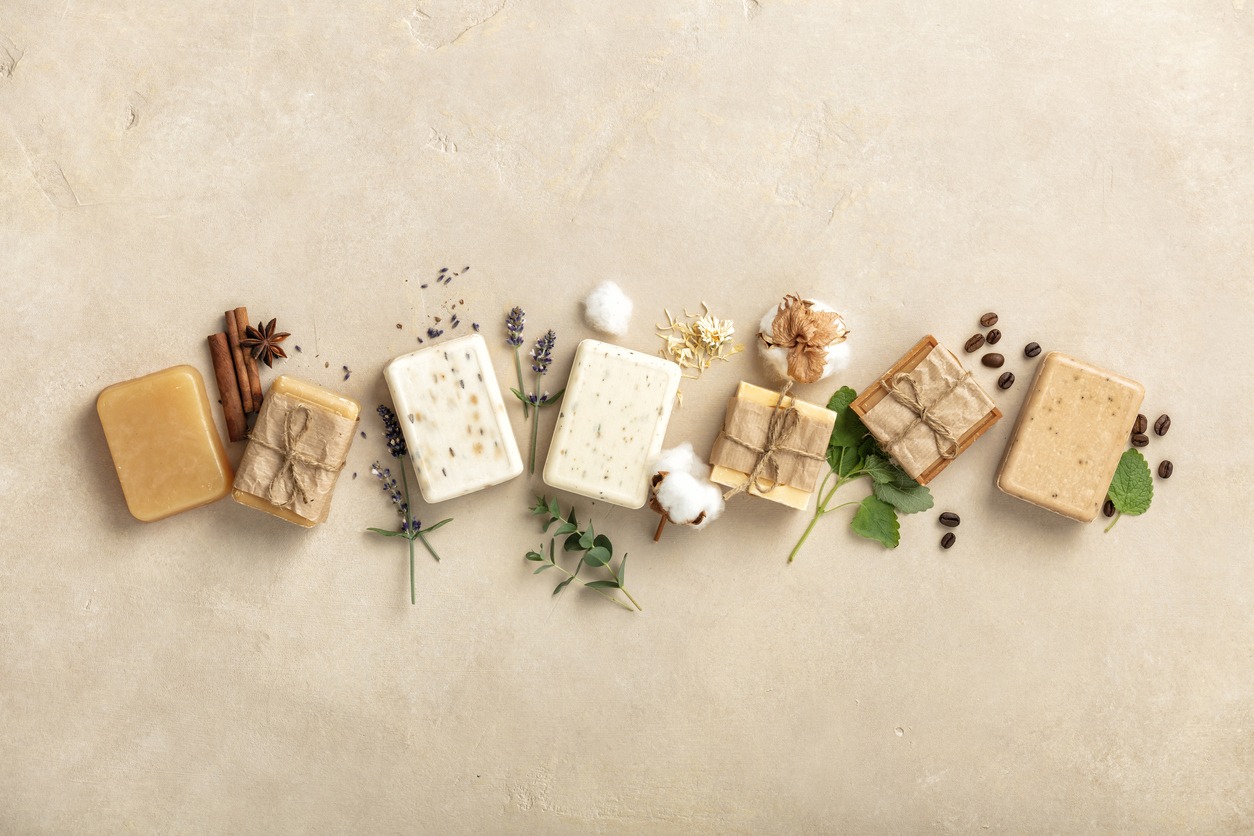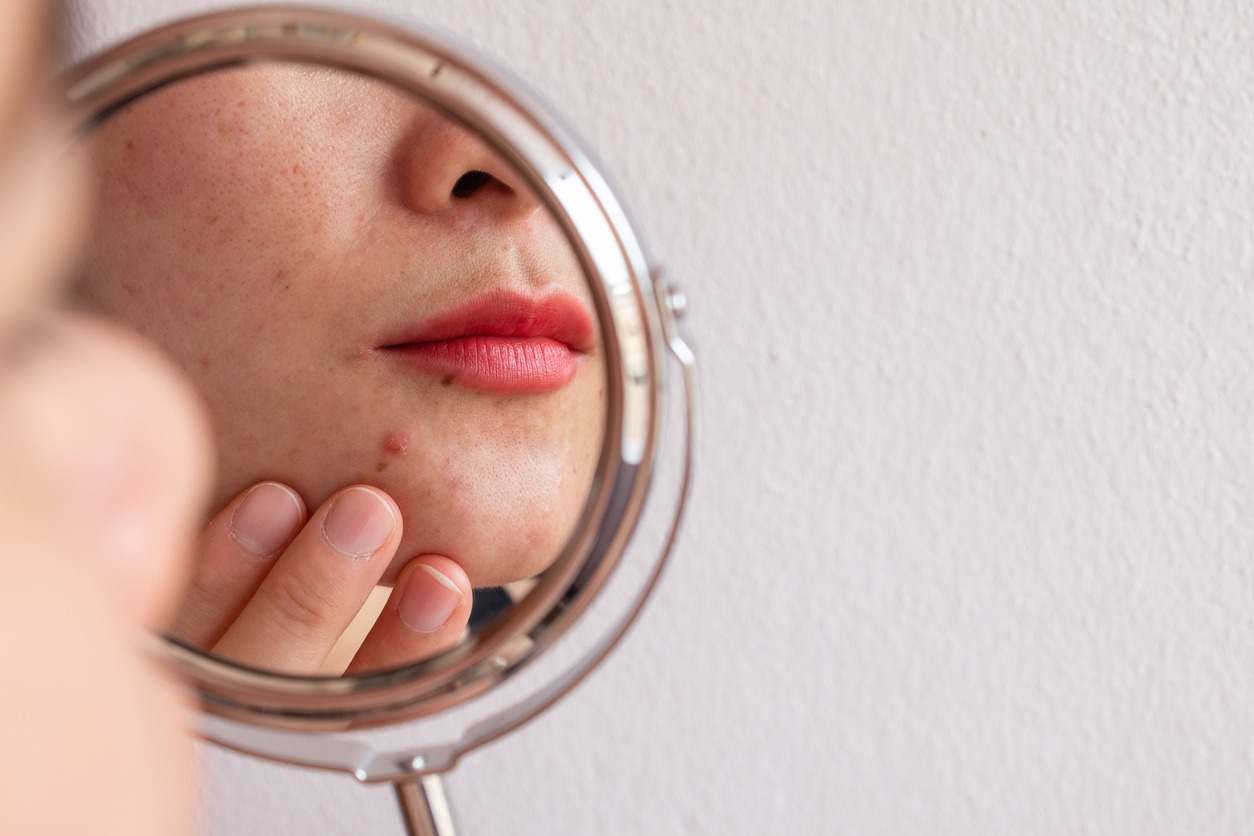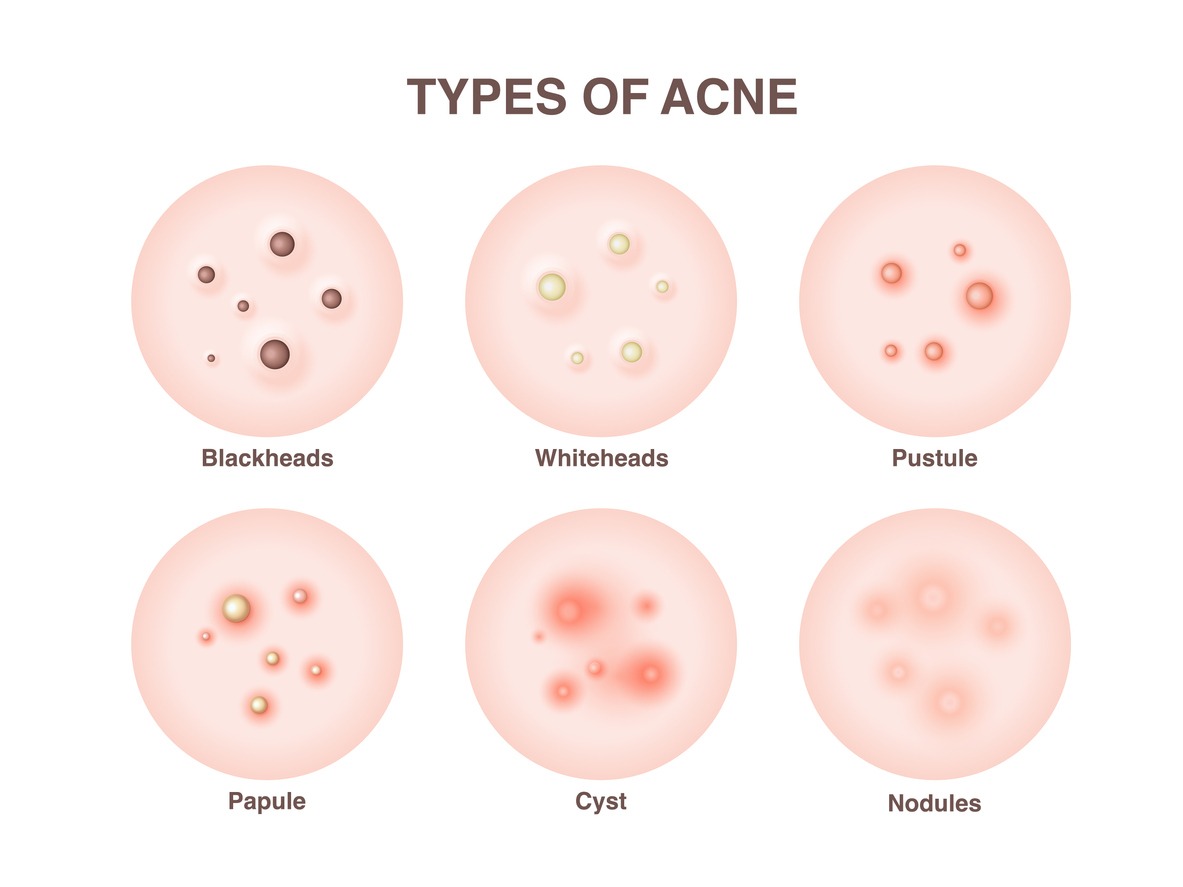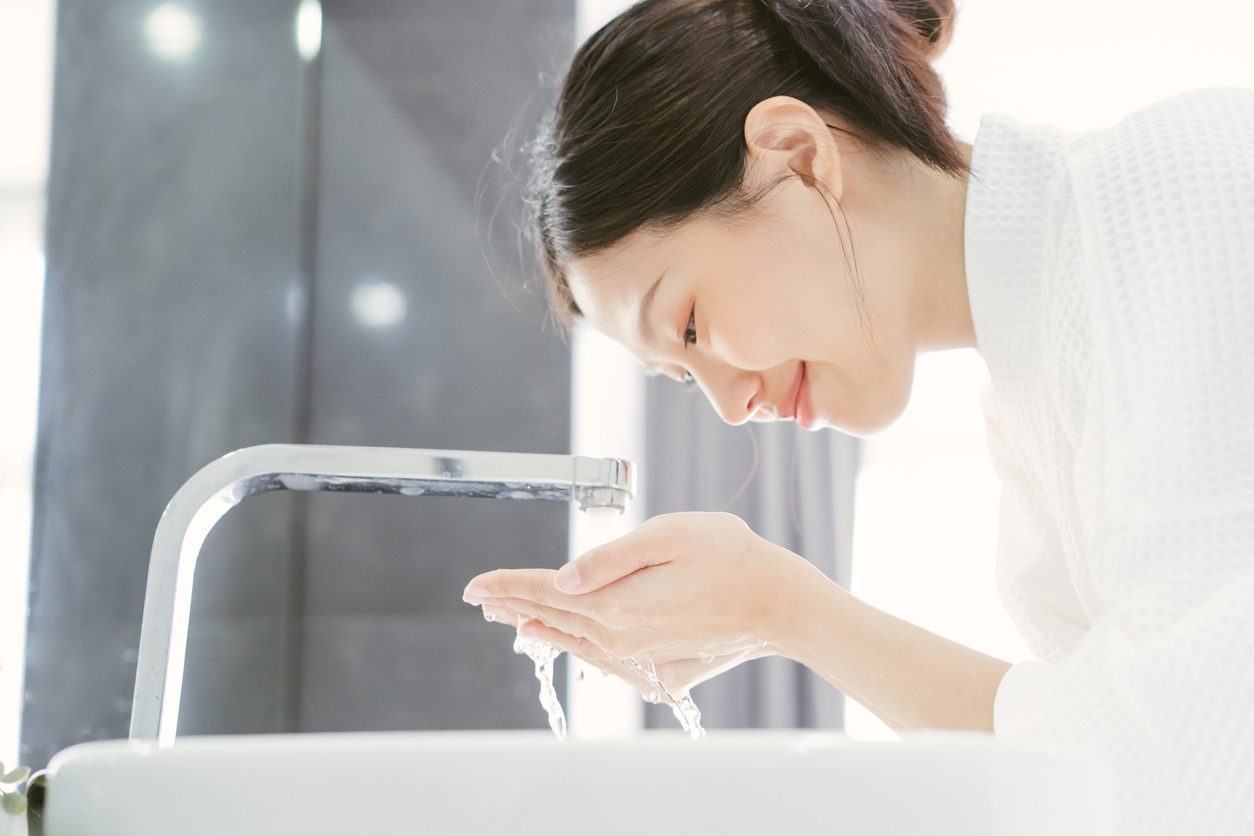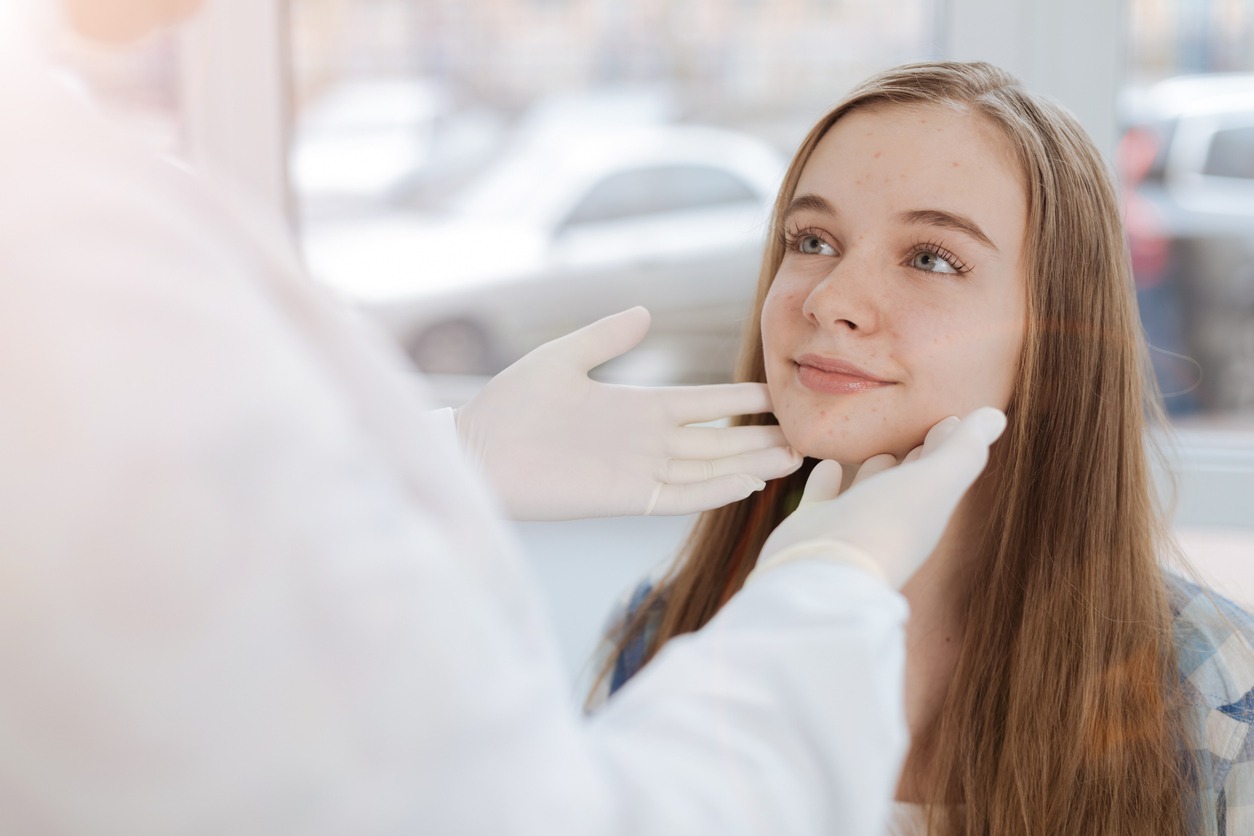When discussing skincare, one of the most frequent problems that people face is acne breakouts. Many people are looking for methods to treat acne breakouts and get rid of pimples. However, the belief that breakouts are an unavoidable consequence of bad hygiene is false, as even those who practice excellent hygiene and good skincare routines occasionally have acne breakouts. According to dermatologists, acne outbreaks can be caused by a mix of genetics, hormones, stress, diet, and bacteria.
People would do almost anything to get rid of acne and have a clear, glowing complexion. However, this occasionally includes products and methods that could not be good for the skin, like abrasive exfoliants, scrubs, and pimple popping. Choosing the right soap or facial cleanser, however, is the best and simplest method if you’re serious about finding a cure for your acne outbreaks.
What is Acne?
Acne is a skin condition that causes pimples. The skin on the face, back, and chest are frequently affected.
Sebum, an oily substance produced in excess by oil glands close to hair follicles, is what causes acne. This extra sebum encourages the growth of P. acnes, a relatively harmless bacteria. The hair follicle becomes irritated and filled with pus when P. acnes overgrows.
Typically, variations in hormone levels are associated with acne. As a result, those going through puberty or pregnancy are more likely to experience it. However, the condition can strike anyone at any age.
Types of Acne
There are six primary categories of acne. As follows:
- Blackheads: These show up as tiny, black bumps on the skin. A blackhead will empty its contents if you squeeze it.
- Whiteheads: Although they resemble blackheads in appearance, pinching them won’t make their contents burst.
- Papules: These are tiny red bumps that could be painful or uncomfortable.
- Pustules: Having a white, pus-filled center, pustules resemble papules in appearance.
- Nodules: Under the skin’s surface, these big, hard, painful lumps can grow.
- Cysts: Cysts resemble boils in appearance and are big, pus-filled tumors. They are the most serious kind of acne lesion and have the highest chance of leaving permanent scars.
Cleansing Your Face Is Important
In any skin care routine, cleansing your face is an important step. A common misconception is that poor hygiene will always lead to breakouts. Acne treatment isn’t always as simple as using strong soap and foaming scrubs, despite the fact that using strong soap may seem like the logical treatment.
Dr. Kathleen Welsh, a dermatologist in San Francisco and the founder of Bay Area Cosmetic Dermatology [1], believes that many teenagers and adults mistakenly believe that acne is brought on by dirty or improperly cleansed skin. “Genetics, hormones, stress, food, and microbes are all involved.”
Depending on your acne type, skin type, and other components of your routine, soap may or may not cure your acne.
How to Choose a Facial Soap for Acne
The use of soap isn’t always bad for acne, but the wrong kind of soap or cleanser might irritate the skin and exacerbate acne or make it more difficult to use the appropriate medications for the condition. A quality acne cleanser will effectively remove makeup and surface oils without causing irritation.
When selecting a product, bear the following advice in mind:
- Look for a cleanser with active ingredients if you want a simple three-step routine. Salicylic acid, benzoyl peroxide, zinc, sodium sulfacetamide, AHA/BHAs, and sodium sulfacetamide are other possible treatments.
- If you prefer a 5- or 10-step regimen, concentrate on using mild, gentle cleansers to help your skin get clean. Allow other acne treatments, such serums and spot treatments, to handle the job.
- Pick a facial soap or wash that is intended for persons with oily or sensitive skin. In addition, choose a mild cleanser that won’t clog your pores any further. You should keep an eye out for labels like “non-comedogenic,” which suggests the product won’t clog pores. It is less likely to result in outbreaks, making it ideal for people with oily or acne-prone skin.
- Anti-inflammatory cleansers are beneficial for sensitive skin and cystic acne.
- For oily skin, salicylic acid, benzoyl peroxide, and sodium sulfacetamide are effective.
- Try to look for ingredients like glycolic acids, salicylic acids, and sulfur on soaps and facial wash if you have non-inflammatory acne on your face, such as blackheads and small whiteheads, as these are keratolytic and can help break the clog inside pimples. In addition, they can exfoliate your skin to lessen acne.
- Use of a hydrating cleanser may be advantageous for dry skin.
- In addition to benzoyl peroxide, aloe, retinoids, tea tree oil, and chamomile, facial soaps may also contain other effective ingredients for treating acne. These substances have the ability to clear clogged pores, lessen oiliness, and destroy bacteria. You can also choose soaps that contain hyaluronic acid, ceramides, and green tea, which are moisturizing and calming ingredients.
There are a few things you should also stay away from:
- Soaps with antibacterial properties for use on the body or dishes.
- Harsh substances for sensitive skin – there are essential oils that can also irritate the skin.
- Drying cleansers – If your skin feels tight and squeaky after using them, think about switching to a cleanser with a lower PH or less active ingredients.
- Avoid soaps and washes for acne that contain sodium lauryl sulfate (SLS), as they can severely dry out your skin and trigger more breakouts.
NOTES:
- Using zinc soap might also assist you in treating acne if you reside in a hot, humid area. However, some zinc soaps contain pore-clogging ingredients, such as cocoa butter. For this reason, before making a purchase, read the label.
- Avoid washing your face with harsh bar soaps, scrubs, or hand soaps that can physically exfoliate the skin.
- Additionally, it’s never a good idea to overwash your face or to use soaps and cleansers each time you do. There are individuals who only rinse their faces with water without using any sort of cleanser to prevent acne breakouts. It’s fine if that will work for you.
Factors to Consider in Choosing the Best Acne-Fighting Soap for You
We all have different types of skin and no one product is truly effective for all skin types. One product may have been beneficial to one, while the same product is detrimental to another. So, when selecting a soap for acne, individuals should take into account the following factors:
- Ingredients: People should read the label of a product to confirm that the ingredients are suitable for skin that is prone to acne. According to the American Academy of Dermatology [2], the following components are frequently found in acne treatment products: salicylic acid, retinoids, and benzoyl peroxide.
- Skin Type: Before purchasing a product, a consumer should read the label to make sure it is suitable for their skin type.
- Allergies: Some acne soaps may irritate those who have allergies. Products without fragrance should be considered for those with sensitive skin.
Other ways to Prevent and Treat Acne
The following advice is provided by the American Academy of Dermatology to assist in controlling acne breakouts [3]:
- Using oil-free products: One has to get items devoid of oil. Products that are oil-free are less prone to clog pores and lead to outbreaks.
- Trying one product at a time: A single product should be used at a time, and it is preferable to wait a few weeks to see how the skin responds. According to the organization, it could take up to 8 weeks for people to see results.
- Avoiding popping acne lesions: Popping acne lesions can cause irritation by pushing pus and dead skin cells deep into the skin. This may cause discomfort and scars.
When to See a Dermatologist
You might find it helpful to seek advice from a specialist if you’ve tried several acne cleansers but haven’t noticed a decrease in acne outbreaks or redness. Additionally, they can advise you on what to include in your regimen to help with dryness or flaking.
Regardless of how severe your acne is, visiting a dermatologist can be beneficial. You may want to schedule a consultation for a variety of reasons; pain or an infection are not prerequisites. You should seek expert guidance if your breakouts are upsetting you or lowering your self-esteem.
Conclusion
Cleaning your skin of impurities and dirt from the day is the goal of any soap or wash. Remind yourself to completely (but delicately!) cleanse your skin for 1 minute; a quick splash and go won’t sufficiently clean your pores.
Additionally, since utilizing a cleanser, toner, spot treatment, and moisturizer all at once might dry out your skin, it is better to avoid using a whole range of products or numerous acne treatments simultaneously. Incorporate things that are effective for you at various points during your regimen.
While some people find spot treatments to be the most effective treatment for their acne, others find toners and serums to be very useful.

